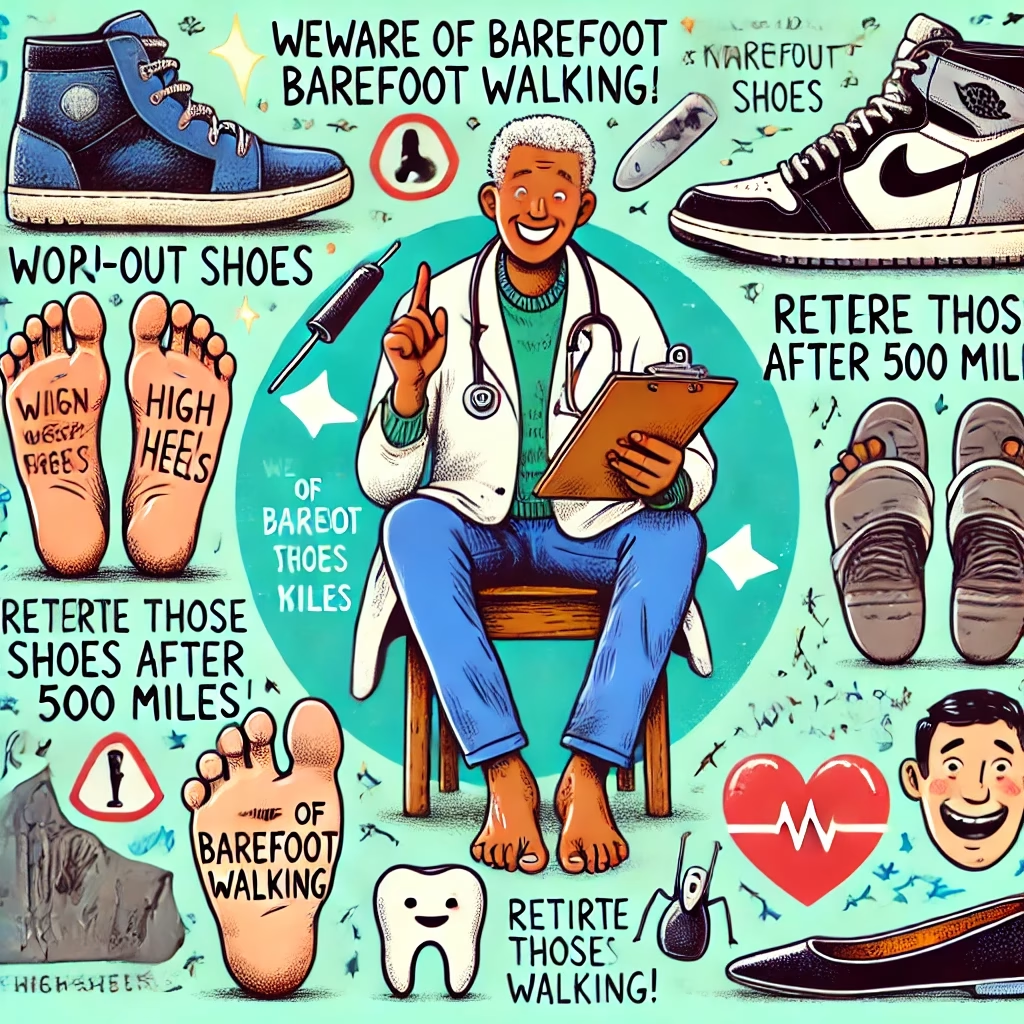If you want to know someone’s intentions, forget their smile. Watch their feet — they always point to the truth. -- YNOT!
If you want to know what a person is really thinking, don’t bother asking them. Most folks are like storefronts during a going-out-of-business sale: big signs in the window, but nothing inside matches the advertisement. They’ll tell you they’re “fine,” even as their eyelid twitches like a dying engine. They’ll swear they’re listening, even though their feet are practically sprinting toward the door. And they’ll smile while quietly fantasizing about flipping your dinner table over.
People are honest everywhere except their mouths.
But their bodies? Oh, their bodies are terrible liars.
So if you want to peek behind the curtain—to see the gears spinning in someone’s mind—you don’t need telepathy. You don’t need therapy. You don’t even need permission.
You just need to pay attention to the small stuff.
Human beings leak truth the way old faucets leak water. You can try tightening the knobs, but the drip keeps coming.
Here are the five leaks that give us away—backed by science, spiced with common sense, and treated with the gentle suspicion that anyone who’s lived a little learns to carry.
1. The Mirroring Trick: The Body’s Accidental Confession
There’s a lovely feature built into the standard human model called the chameleon effect.
It’s what happens when someone starts mirroring your posture, your gestures, your tone—without a lick of awareness that they’re doing it.
Cross your arms.
They cross theirs.
Lean in.
They lean in.
Scratch your ear.
They scratch theirs and spend the next five minutes wondering why their ear suddenly itches.
Science calls it limbic synchrony.
I call it nature’s way of telling you: “This person likes you, or wants something, or feels safe enough not to guard themselves.”
Mirroring is the mind opening the screen door.
But be warned: manipulators mirror too.
A wolf can wear a sheep costume; a salesman can wear your posture.
The trick isn’t reading the mirroring—it’s reading the motive.
2. The Fidget Index: Nerves Never Sit Still
Watch what people do with their hands when their brains get uncomfortable.
People fidget the way computers spin a loading wheel:
It means something’s happening under the hood—usually confusion, boredom, embarrassment, anxiety, or the desperate wish to be anywhere else.
Touching the neck?
Self-soothing.
Tugging at clothes?
Stress leak.
Tapping fingers?
Their patience has packed its suitcase and is already halfway out of town.
Science links fidgeting with psychological distress.
Life links fidgeting with “This conversation is either too much, too fast, or too stupid.”
If someone fidgets the entire time you’re talking, don’t get offended.
Just shorten the story.
3. The Nodding Trap: All Agreement Isn’t Agreement
Humans nod for only two reasons:
- They agree.
- They want the moment to end.
The second kind nods like a bobblehead on a pothole road—fast, excessive, eager. “Yes yes yes of course yes yes yes absolutely yes” while their soul quietly climbs out the window.
Excessive nodding usually means:
“I’m anxious,”
“I’m trying to be polite,” or
“If I nod enough maybe you’ll stop talking.”
It’s compassion or panic, not conviction.
That’s why the smartest question you can ask a nodder is:
“What’s your real take on this?”
The answer after the nod is the truth.
4. Where the Feet Point, the Heart Goes
Faces lie.
Voices lie.
Feet tell the truth like gossip.
People point their feet toward what (or who) they want.
Toward you? They’re in.
Toward the exit? They’re done.
Toward someone else? You lost before you started.
Feet are honest because they’re controlled by older wiring—survival wiring.
Your feet don’t care about politeness or good manners.
They care about where you want to go next.
If you want to know who someone’s paying attention to in a group, don’t look at their smile—it might be rented.
Look at their shoes—they’re never acting.
5. The Blink Code: Windows to the Worry
Blinking is a tiny semaphore signal from the brain.
Slow blinking?
Calm, focused, comfortable.
Rapid blinking?
Stress, nerves, guilt, overload.
Heavy blinking freeze?
Hyper-focus, discomfort, emotional bracing.
Studies show blink rates shift with stress and emotional arousal.
Experience shows blink rates shift when someone feels caught, overwhelmed, or running out of good answers.
But blinking is tricky—it can also mean someone needs eye drops.
So treat it as a clue, not a verdict.
The eyes whisper; they don’t testify.
The Real Moral of the Story
Learning to read people isn’t about catching them in lies or decoding them like spies.
It’s about noticing the small, honest things we reveal without intending to.
Most of us are too busy talking to notice anything at all.
But if you stay quiet just long enough—if you watch the mirroring, the fidgeting, the nodding, the feet, the blinking—you begin to see people as they are, not as they perform.
And that’s when human nature becomes interesting.
That’s when you realize:
We’re not mysterious.
We’re legible.
Every mind carries a subtitle track.
Most folks just never turn it on.
A Final Thought
If you really want to understand someone, don’t listen to their words first.
Listen to their body’s unedited version.
Words tell you who they wish they were.
Body language tells you who they actually are.
One is a story.
The other is the truth slipping through the cracks.
And that’s where the real human comedy lives.
© 2025 insearchofyourpassions.com - Some Rights Reserve - This website and its content are the property of YNOT. This work is licensed under a Creative Commons Attribution 4.0 International License. You are free to share and adapt the material for any purpose, even commercially, as long as you give appropriate credit, provide a link to the license, and indicate if changes were made.








